Coronavirus: Travel backflips causing chaos for operators
Rottnest Island has long been WA’s summer playground. But for the rest of the country it is paradise denied.
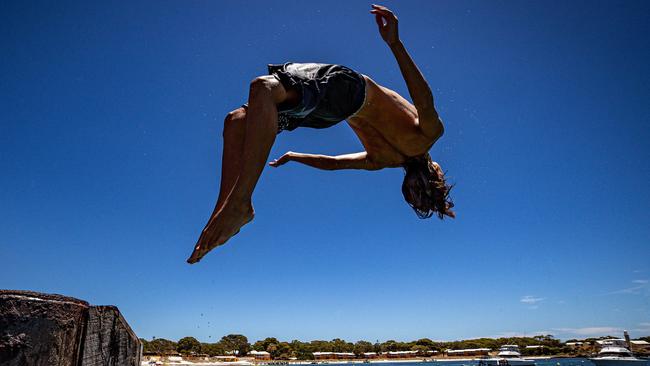
With its sun-soaked beaches, crystal waters and Instagrammable wildlife, Rottnest Island off the coast of Perth has long been the summer playground for West Australians. For the rest of the country, it is paradise denied.
Rather than promoting WA as a destination for itchy-footed eastern staters looking to tick the likes of Rottnest, Margaret River and the Kimberley off their bucket lists while international travel is off the agenda, WA has taken a locals-only approach.
As Premier Mark McGowan has closed the state’s borders to NSW and Victoria, for the locals with no cases of community transmission of coronavirus since April, the state’s beaches have been jammed at densities that would promote extreme anxiety — if not a police response — in many other parts of the world.
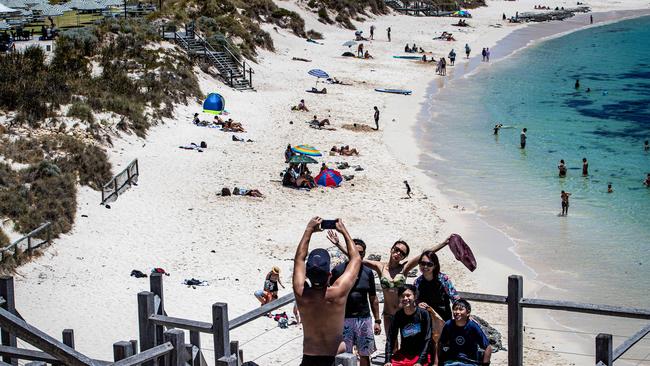
While West Australians are enjoying their holidays at home, across Australia the fear of being caught out by sudden border closures is proving more of an impediment to domestic travel than the fear of catching COVID-19.
The closures — when there were six locally acquired COVID-19 transmissions across the nation on Monday — has smashed confidence. In the two weeks since Christmas Eve, tourism revenue across the nation has dropped at least $3bn compared with a year ago, with regions such as far north Queensland losing $8m a day.
Almost daily changes to border restrictions by the states and territories have been blamed by frustrated operators, struggling to keep up with who can go where.
Research by the Australian Airports Association found 52 per cent of 500 people surveyed were now more concerned about sudden border closures than COVID-19.
In Tasmania, Aaron Suine, co-owner of the exclusive Kittawa Lodge on King Island, said: “This is peak season and we’ve gone from 98 per cent occupancy in early January to 46 per cent occupancy.
“If this continues, we will see the same impact in February, with the same issue around not being able to rebook the rooms … people have no clarity over when borders will reopen so they want to keep their current dates as long as possible.”
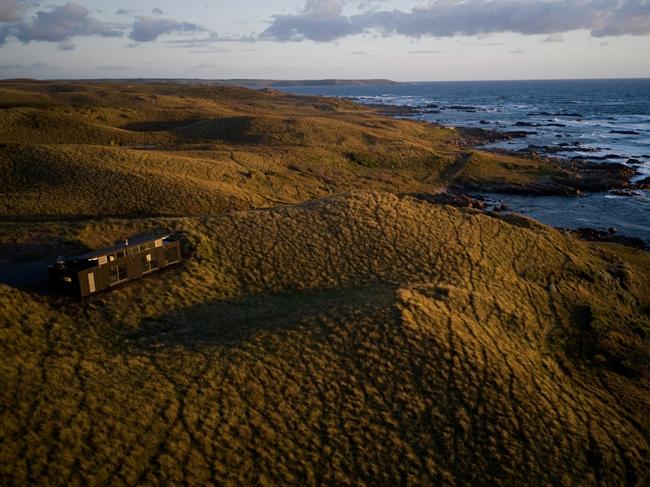
Penny Rafferty, executive officer of Luxury Lodges of Australia, said the stop-start nature of border closures and regulations was putting enormous pressure on operators in terms of staffing and supplies, with a huge knock-on effect on regional economies.
The lodges, which include the likes of Lake House in Daylesford, Victoria, and Lizard Island Resort in Queensland, had witnessed flurries of bookings because of pent-up demand, only to see them evaporate as state border restrictions changed.
“The ongoing uncertainty is just making it more and more untenable for business operation, managing staff, and managing suppliers,” Ms Rafferty said.
She believed there was a rising despondency among operators that was causing “at best exhaustion, and at worst depression”.
“It just makes (the business) even more economically fragile and extremely precarious.”
Anecdotally, she had heard customers were becoming so unsettled by border closures that they were now choosing to cancel bookings rather than postpone them yet again.
Craig Bradbery, chief operating officer of Baillie Lodges, which lost Southern Ocean Lodge on Kangaroo Island to the bushfires last summer, said: “We’ve seen short-term impacts on our lodges, especially on Longitude 131 at Kata Tjuta [Uluru]. But we’re also concerned about the longer-term impact, that travellers will be so uncertain about the ability to return home that they’ll abandon their plans to travel all together — at least for the time being.”
At the other end of the accommodation spectrum, NRMA Parks and Resorts chief executive Paul Davies said there had been a significant impact on holiday bookings at the group’s 33 properties across the eastern states and South Australia.
In WA, while Rottnest Island is booming, the big hotels in Perth’s CBD have seen interstate business travel evaporate, while the tour operators who typically hold more appeal to international and interstate visitors have struggled. The tourist experiences that are often must-dos for those from abroad don’t always hold the same appeal for locals.
The border stance has also cut off a key source of labour for many tourism operators. Peter Prendiville, whose Prendiville Group owns and operates some of the most famous hotels and resorts across the state, told The Australian the past few months had been a case of “the best of times, and the worst of times”.
Demand is through the roof thanks to the locals, but the closed borders means he hasn’t been able to find the casual workers he needs.
One of his hotels in Broome is closed, not for a lack of customers but a lack of staff.
He told The Australian he was about 300 workers short right now. The international backpackers who would normally fill many of those roles just aren’t here; potential hires from interstate have been held up by WA’s border closures; and the state’s pool of casual workers has been drained by the booming mining and construction sectors.
In October, Mr Prendiville formally opened the Samfire Resort at Rottnest, a high-end offering at an island that has not historically been renowned for the quality of its accommodation. It has been full ever since.
“We’ve not put an ad in the paper for the place once, because we figured that keeping up with the trade that would come would be a challenge in itself, and so it was,” he said.
“From day one, we got absolutely hammered.”
The end of international travel under COVID-19 restrictions has hugely increased demand for cruises along the Kimberley coast, although Australia’s ever-shifting border restrictions continue to mess with travel plans.
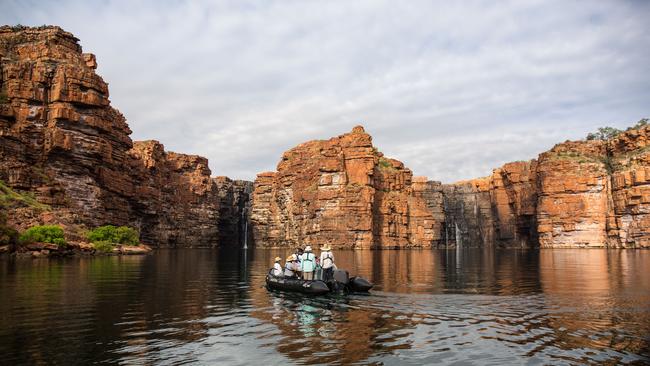
Jeff Gillies, commercial manager for Coral Expeditions, says all three expedition vessels will soon head back to the Kimberley from seasons cruising the Great Barrier Reef and Tasmania.
“There’s a lot of demand out there for Australian voyages, and we’ve never seen so much interest in the Kimberley in 25 years of operation,” he said.
The company has scheduled 16 more cruises than normal and a longer season to accommodate the demand, but WA’s ruthless approach to its borders is a major complicating factor.
“We’ve got more than 2000 guests booked, many having postponed their cruise last year,” Mr Gillies said. “About 25 per cent are from NSW and another 25 from Victoria, with the balance a mixture of locations. The question is: are they going to be able to get there?”
He said confidence was high before Christmas as WA opened up its borders. “Then we saw outbreaks in the eastern states, and we anticipate there’ll be times when guests from certain areas can’t travel — but we’re hoping for fewer interruptions.”
Cruise Broome chairman Shayne Murray said a dozen expedition ships were able to operate cruises in the Kimberley because they carried fewer than 100 guests and were Australian-flagged and Australian-crewed.
Currently, international cruise ships are banned from entering Australian waters, although the federal government is to review the ban in March.
“But it’s a Catch-22 because while bookings are solid and boats are pretty much sold out, the passengers are pretty much all eastern states visitors, so we still have a challenge,” he said.
ADDITIONAL REPORTING: Penny Hunter


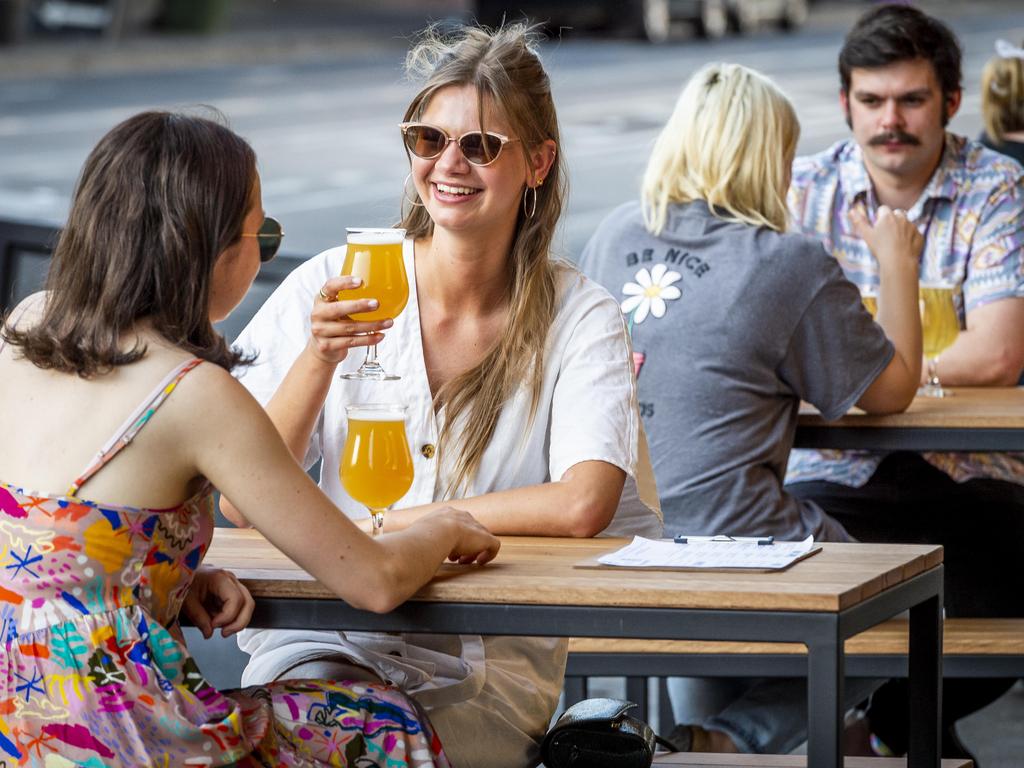



To join the conversation, please log in. Don't have an account? Register
Join the conversation, you are commenting as Logout